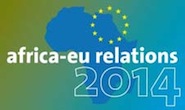The EU has a longstanding tradition of engaging in democracy promotion, using a wide range of strategies and instruments to support processes of democratic consolidation, including in difficult contexts. While some successes have been achieved, the task of building genuine democratic systems that go beyond formal structures and help to deliver development has proven very challenging - for both local democracy promoters and international partners. The need for “deepening democracy” has become a rallying cry in the last years. Growing attention is paid to the role of both the “political society’” (i.e. parliaments, political parties) ...
Financing the Millennium Development Goals (MDGs) remains a major challenge. It is becoming clear that Official Development Assistance from donor countries will not be sufficient to fill the existing finance gap. A new OECD Working Paper zooms into domestic resource mobilisation - savings generated from domestic resources - as potential source of finance, and gives an updated estimate of the cost of meeting the MDGs. This article takes a closer looks at some details of the report. OECD’s research plays a valuable role in re-focusing minds towards the costs involved in meeting six of the MDGs ...
In the various analyses of the European External Action Service (EEAS) one year on, those who view the glass “half empty” (mostly independent analysts, journalists and think tanks) seem to have the upper hand on those who view it as “half full” (the official report). Key questions for assessing the EEAS’ performance in relation to Africa are: has the EEAS helped to upgrade the political dialogue between the EU and Africa, and increased the coherence of EU policies, while also furthering development commitments? Africa as a whole, like many other regions and issues, has struggled ...
In response to the Arab Spring the European Commission has proposed to create a new European Neighbourhood Instrument, based on the European Union’s reviewed approach to cooperation with its neighbours in North Africa, the Middle East and Eastern Europe. This new approach was set out in an EU Communication from May 2011 entitled “A new response to a changing Neighbourhood”, and is based on the following principles: “More for more” (“less for less” to be used only in extreme scenarios); Differentiation amongst countries receiving support; and Better coordination between different EU actors (European External Action ...

















